An indicatorbased monitoring of structural quality in the German early childhood education and care system (ERiK)

The ERiK-Project provides the empirical basis for monitoring the implementation of the Act on the Further Development of Quality and the Improvement of Participation in Day Care Facilities and in Child Day Care (KiQuTG). Data on the parents‘ needs, the staff situation as well as on the children’s health, language support and the topic of space in day care is interpreted with regards to the KiQuTG’s respective qualitative fields of action. In the ERiK Research Report II data from the ERiK-Surveys 2020 is analysed for the first time. The nationwide surveys are the source of multiple indicators and key figures which are central to the monitoring.
The ERiK Methodological Reports provide a broad overview of the survey data collected as part of the ERiK-Project.
Together the ERiK Research Reports and the "Fortschrittsberichte der Länder" form the empirical basis for the yearly monitoring reports of the Federal Ministry for Family Affairs, Senior Citizens, Women and Youth (BMFSFJ), such as the "Gute-Kita-Bericht 2022", and the federal government’s "Evaluationsberichte".

ERiK Research Report II
Results of the indicatorbased monitoring of the KiQuTG
- Printversion: You may order a german print version on the wbv Media website.
- Onlineversion: (Download)
ERiK Research Report II - Table Appendices (xlsx)
Tables for chapter 1 - Tables for action area 01
Tables for action area 02 - Tables for action area 03
Tables for action area 04 - Tables for action area 05
Tables for action area 06 - Tables for action area 07
Tables for action area 08 - Tables for action area 09
Tables for action area 10 - Tables for chapter 11
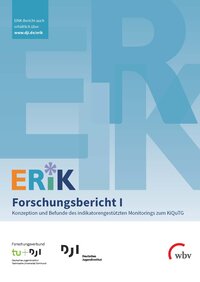
ERiK Research Report I
Theoretical concept and results of the indicatorbased monitoring of the KiQuTG
- Printversion: You may order a print version on the wbv Media website.
- Onlineversion: (Download)
ERiK Research Report I - Table Appendices (xlsx)
Tables for action area 01 - Tables for action area 02
Tables for action area 03 - Tables for action area 04
Tables for action area 05 - Tables for action area 06
Tables for action area 07 - Tables for action area 08
ERiK Research Report IV
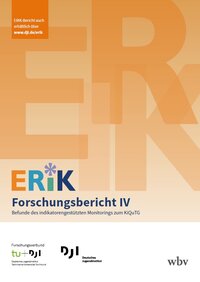
Results of the indicatorbased monitoring of the KiQuTG
- Printversion:You may order a german print version on the wbv Media website.
- Onlineversion: (Download)
ERiK Research Report III
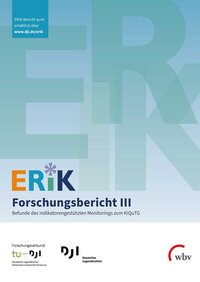
Results of the indicatorbased monitoring of the KiQuTG
- Printversion:You may order a german print version on the wbv Media website.
- Onlineversion: (Download)
ERiK Methodological Report I
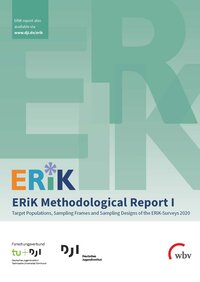
Target Populations, Sampling Frames and Sampling Designs of the ERiK-Surveys 2020
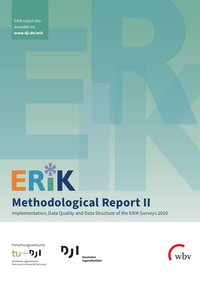
ERiK Methodological Report II
Implementation, Data Quality and Data Structure of the ERiK-Surveys 2020
- Printversion: You may order a print version on the wbv Media website.
- Onlineversion (Download)
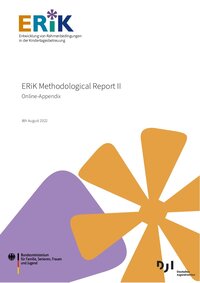
ERiK Methodological Report II - Online-Appendix
Letters of invitation, Reminders, Data Protection Information, Questionnaires

ERiK Federal State Report II
Federal State Reports II of the monitoring of the KiQuTG
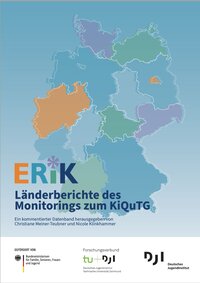
ERiK Federal State Report I
Federal State Reports of the monitoring of the KiQuTG
The online versions on this download page may be accessed free of charge. Any use outside the limits of copyright law is prohibited and liable to prosecution, in particular storage and processing in electronic systems.


